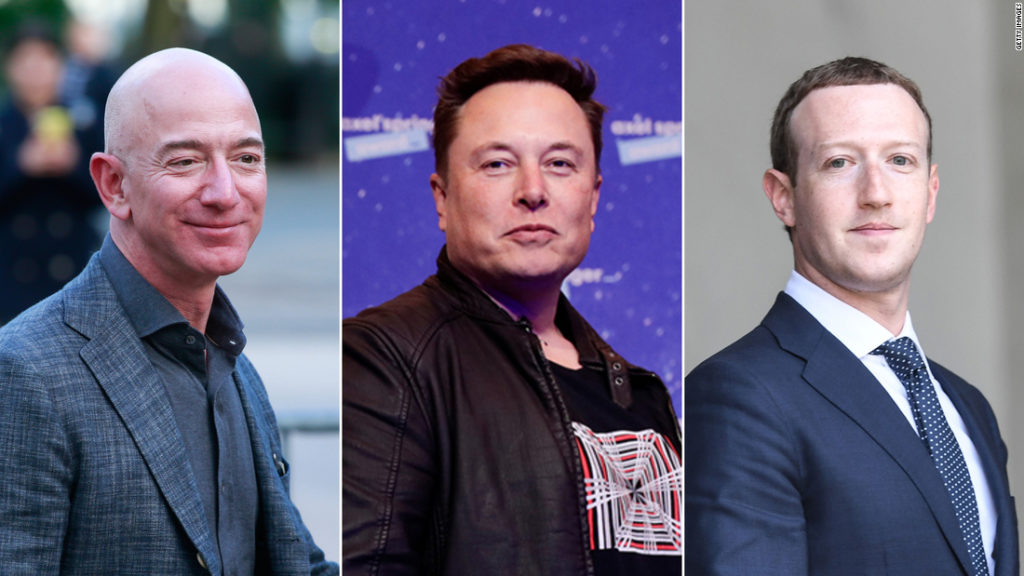US billionaires have collectively become $1.1 trillion — nearly 40% — richer since mid-March, according to a report published Tuesday by progressive groups Institute for Policy Studies and Americans for Tax Fairness.
Clearly, the pandemic is worsening America’s already troubling inequality crisis. The staggering gains at the top contrast sharply with the financial struggles of those at the bottom, many of whom are on the front lines of the pandemic and have lost their jobs or had wages cut.
America’s 660 billionaires now hold $4.1 trillion in wealth — two thirds more than the amount held by the bottom 50% of the US population, the report found.
Poverty rate climbs sharply
The US poverty rate declined during the first few months of the pandemic, in large part because of the federal government’s stimulus checks. However, the poverty rate climbed 2.4 percentage points during the second half of the year — nearly double the largest annual increase in poverty since the 1960s, the economists found.
Some groups have suffered more than others. The poverty rate for Black Americans is 5.4 percentage points higher today than in June 2020, translating to 2.4 million people who have fallen into poverty, the economists found.
For those with a high school education or less, the poverty rate has surged to 22.5%, compared to 17% in June.
Florida, Mississippi, Arizona and North Carolina were among the states that suffered the largest increases in poverty rates. The state-level findings “suggest that poverty rose more in states with less effective unemployment insurance systems,” the economists said in the report.
How Biden wants to fight inequality
The wealth and poverty statistics provide further proof of America’s K-shaped economic recovery.
The stock market is at record highs, the housing market is booming and Big Tech is thriving. However, other industries including airlines, restaurants, hotels and movie theaters are still in disarray.
Surging housing, stock markets
The stock market has played a significant role in the divide between rich and poor.
Even though the US economy has not fully recovered from the pandemic, the S&P 500 is up by 72% from its low point in March. That V-shaped recovery reflects optimism about vaccines, trillions in relief provided by Washington and unprecedented steps from the Federal Reserve that have essentially forced investors to bet on stocks.
Inequality isn’t just an American problem.
You may also like
-
Afghanistan: Civilian casualties hit record high amid US withdrawal, UN says
-
How Taiwan is trying to defend against a cyber ‘World War III’
-
Pandemic travel news this week: Quarantine escapes and airplane disguises
-
Why would anyone trust Brexit Britain again?
-
Black fungus: A second crisis is killing survivors of India’s worst Covid wave

